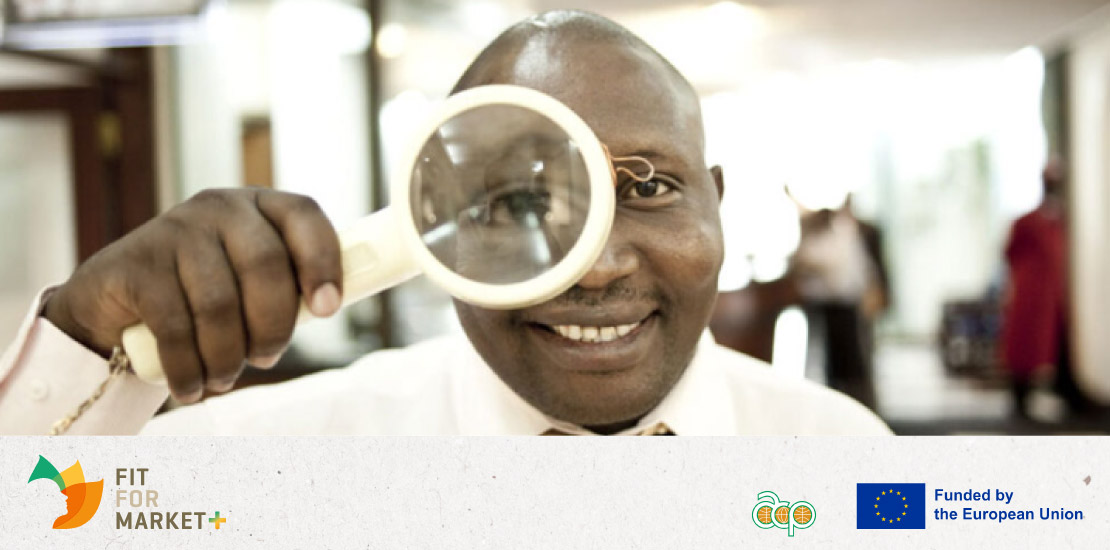- 01/12/2024
- Posted by: Gaetan Dermien
- Category: Uncategorized

| EU and GB approval changes COLEAD’s Regulation Monitoring covers both European Union (EU) and Great Britain (GB) approval changes. Note that EU approvals still apply in Northern Ireland. Great Britain is the mainland comprising England, Scotland and Wales. The European Commission (EC) has recently published changes to 22 plant protection product (PPP) approvals within the EU, of which 11 are important for ACP horticulture. These include:
The Health and Safety Executive (HSE) has recently published changes to 71 PPP approvals within GB, of which 34 are of importance for ACP horticulture. These include:
EFSA has recently published a peer review on risk assessment of fludioxonil. It concluded that fludioxonil meets the criteria for endocrine disruption under Regulation 1107/2009. This classification falls under the critical cut-off criteria for active substances, potentially leading to its non-renewal for use in the EU.
How will ACP producers/exporters be affected? Non-approval, withdrawal of approval or expiration of approval mean that EU/GB maximum residue levels (MRLs) are likely to be maintained or reduced to the limit of determination (LoD) which, in most cases, will mean that they cannot be used on crops for export to the EU/GB.
What should ACP producers/exporters do now? If you currently use fenpyrazamine or flumetralin on crops destined for the EU market, or aluminium sulphate, flutriafol, hydrolysed proteins, L-ascorbic acid and spinetoram on crops for the GB market, you need to look for alternatives or ensure that current uses allow you to comply with the new MRLs (most likely at LoD), as soon as the change is communicated. If this is likely to cause you significant problems, and you fear being left without effective and available alternatives, please contact COLEAD at: network@colead.link. We will keep you informed as more information becomes available. |
Our news is a quarterly update designed to inform you of any changes introduced during the preceding three months. If you require more frequent updates on EU approval changes changes, we recommend that you visit our AGRINFO website and subscribe to the bi-monthly newsletter on EU regulations.
ACP countries potentially impacted by changes of EU and GB PPP approvals during the period August-November 2024
COLEAD has compiled a dashboard presenting registered products containing the active substances for which the approval is not renewed or withdrawn in the EU and in GB and their respective conditions of use in ACP countries. This aims to outline the ACP countries where these approval changes might have repercussions for export. It is based on information extracted from the latest national lists of registered plant protection products made available by 34 ACP countries (list available here).
 Figure 1: Map of the potentially impacted ACP countries following the changes of approvals in the EU and GB
Figure 1: Map of the potentially impacted ACP countries following the changes of approvals in the EU and GB
COLEAD is making all effort to provide you with relevant and updated information. If your country is not included in the 34 countries included in our review, we highly recommend reaching out to your national authorities to check which products might be affected by these changes.
Key changes of approval in the EU during the period August-November 2024
The EC has recently published changes to 22 plant protection product (PPP) approvals within the EU. In this News, ‘key active substances’ refers to those used/registered in one or more ACP countries on horticultural crops that are frequently exported regionally or internationally. While COLEAD makes every effort to provide comprehensive information about EU and GB PPP regulatory changes, it is possible that some PPPs or crops relevant to you are not included in our list of key substances/crops. We recommend that you review the following section, which gives details on all approval changes since the beginning of 2024, to check for any others that could affect you. If you see any PPP that you use on crops for export to the EU or GB in the lists below, we recommend that you check the regulation using the link provided.
Approval periods have been extended for the following key substances (new expiry dates):
- Azoxystrobin (New expiry date: 31 May 2027)
- Chlorantraniliprole (New expiry date: 31 May 2027)
- Imazalil (New expiry date: 31 May 2027)
- Kresoxim (New expiry date: 31 May 2027)
- Tefluthrin (New expiry date: 31 May 2027)
- Paecilomyces fumosoroseus strain Fe 9901 (New expiry date: 31 May 2027)
Expiration of the approval of the active substances fenpyrazamine and flumetralin
The EC has published Commission Implementing Regulation (EU) 2024/2848 concerning the expiration of approval of active substances fenpyrazamine and flumetralin for use in the EU.
The approval period for fenpyrazamine was previously extended from 31 December 2023 until 31 May 2026 and from 11 December 2023 until 11 May 2026 for flumetralin, to allow a review of the substances to be completed before its planned expiry date. However, as the manufacturer no longer supports the applications for renewal, no review will take place and the extension periods have both been withdrawn. The approval periods for fenpyrazamine and flumetralin will therefore expire on 15 January 2025. From that date, fenpyrazamine and flumetralin can no longer be used in the EU Member States.
As a result, the EU is expected to reduce fenpyrazamine maximum residue levels (MRLs) to the limit of determination (LOD, the lowest level that can be detected using the most modern and reliable analytical methods), which could have an impact for exports to the EU. As flumetralin’s MRLs are already at the LOD, it’s approval expiration should not have an impact on exports.
Renewal of the approval of the active substances captan, folpet and metrafenone
The EC has recently published Commission Implementing Regulations 2024/2186, 2024/2198 and 2024/2390 concerning the renewal of approvals for the respective active substances captan, folpet and metrafenone. Their new approvals will expire on 31 October 2039.
All PPP approval changes in the EU introduced in 2024
Table 1 shows all changes to PPP approvals introduced in the EU since the beginning of 2024.
If you require additional information or face particular problems as a result of these changes, please contact COLEAD at: network@colead.link
Key changes of approval in GB during the period August-November 2024
Withdrawal of the approvals concerns the following key active substances:
- Aluminium sulphate (withdrawn on 31 August 2024)
- Flutriafol (withdrawn on 31 August 2024)
- Hydrolysed proteins (withdrawn on 31 August 2024)
- L-ascorbic acid (withdrawn on 30 September 2024)
- Spinetoram (withdrawn on 30 September 2024)
Approval periods have been extended for the following key substances (new expiry dates):
- 1,4-Dimethylnaphthalene (new expiry date: 30 June 2031)
- Aclonifen (new expiry date: 31 July 2027)
- Ametoctradin (new expiry date: 31 July 2031)
- Bixafen (new expiry date: 31 May 2031)
- Copper compounds (new expiry date: 31 December 2027)
- Copper oxide (new expiry date: 31 December 2027)
- Copper oxychloride (new expiry date: 31 December 2027)
- Cyantraniliprole (new expiry date: 14 September 2031)
- Cycloxydim (new expiry date: 31 May 2031)
- Cyflumetofen (new expiry date: 31 May 2031)
- Eugenol (new expiry date: 30 November 2031)
- Fluxapyroxad (new expiry date: 31 May 2031)
- Geraniol (new expiry date: 30 November 2031)
- Hymexazol (new expiry date: 31 May 2031)
- Maltodextrin (new expiry date: 30 September 2031)
- Mandipropamid (new expiry date: 31 July 2031)
- Metalaxyl (new expiry date: 30 June 2029)
- Oxathiapiprolin (new expiry date: 31 May 2031)
- Penthiopyrad (new expiry date: 30 June 2031)
- Proquinazid (new expiry date: 31 July 2027)
- Spiroxamine (new expiry date: 31 December 2031)
- Tebufenpyrad (new expiry date: 31 October 2026)
- Thymol (new expiry date: 30 November 2031)
- Tribasic copper sulfate (new expiry date: 31 December 2027)
- Aluminium phosphide (new expiry date: 31 August 2031)
- Fenazaquin (new expiry date: 31 May 2031)
- Flupyradifurone (new expiry date: 09 December 2026)
- Magnesium phosphide (new expiry date: 31 August 2031)
- Sulfoxaflor (new expiry date: 18 August 2031)
All PPP approval changes in GB since the beginning of 2024
Since the beginning of 2024, approval status have been updated for 87 plant protection product (PPP) approvals within GB, of which 41 are considered key for ACP horticulture, see Table 2.
Proposed future approval changes
All draft regulations must be notified either to the WTO Sanitary and Phytosanitary Committee (SPS) or Technical Barriers Committee (TBT) for a commenting period of 60 days before they are adopted. This provides an important opportunity for countries to comment on the proposed changes, and to seek an amendment if a change is likely to have a significant impact on exports. To provide feedback stakeholders should contact their national WTO contact point .
During the period August-November, nor the EC, nor HSE have notified the WTO of future approval status changes that could affect exports to the EU.
Peer review on the risk assessment of the active substance fludioxonil
The European Food Safety Authority (EFSA) has recently published the peer review on the risk assessment of the active substance fludioxonil.
EFSA has concluded that fludioxonil meets the criteria for endocrine disruption under Regulation 1107/2009. This classification falls under the critical cut-off criteria for active substances, potentially leading to its non-renewal for use in the EU.
While EFSA has not yet issued final recommendations on Maximum Residue Levels (MRLs), it is important to note that non-renewal is often accompanied by a reduction of MRLs to the Limit of Detection (LOD).
Fludioxonil is a broad-spectrum fungicide used to control a range of diseases in fruit and vegetable crops. In ACP countries, more than 40 registered plant protection products (PPP) contain fludioxonil. As an example, fludioxonil, was registered as an alternative to prochloraz for the post-harvest treatment of mango anthracnose. Its potential non-renewal could pose a considerable challenge to the ACP horticultural sector due to the potential lowering of the MRL which would make it impossible to use it in post-harvest treatment on mangoes exported to the EU.
Producers and suppliers relying on fludioxonil should begin exploring alternative solutions to mitigate potential disruptions.
One already available alternative is products containing Bacillus amyloliquefaciens strain QST 713. COLEAD supported the registration of this biopesticide for post-harvest treatment of mango in 10+ countries in West Africa. While this solution may be more expensive, it provides the significant advantage of being compatible with organic production systems and leaves no residue (i.e. no risk of MRL exceedance).
Further updates will follow as more information becomes available.
References
Lewis, K.A., Tzilivakis, J., Warner, D. and Green, A. (2016). An international database for pesticide risk assessments and management. Human and Ecological Risk Assessment: An International Journal, 22(4): 1050-1064. DOI: 10.1080/10807039.2015.1133242
This publication has been developped by the Fit For Market Plus programme, implemented by COLEAD within the framework of Development cooperation between the Organisation of African, Caribbean and Pacific States (OACPS), and the European Union (EU).
This publication has been produced with the financial support of the EU and the OACPS. Its contents are the sole responsibility of COLEAD and can under no circumstances be regarded as reflecting the position of the EU or the OACPS.





